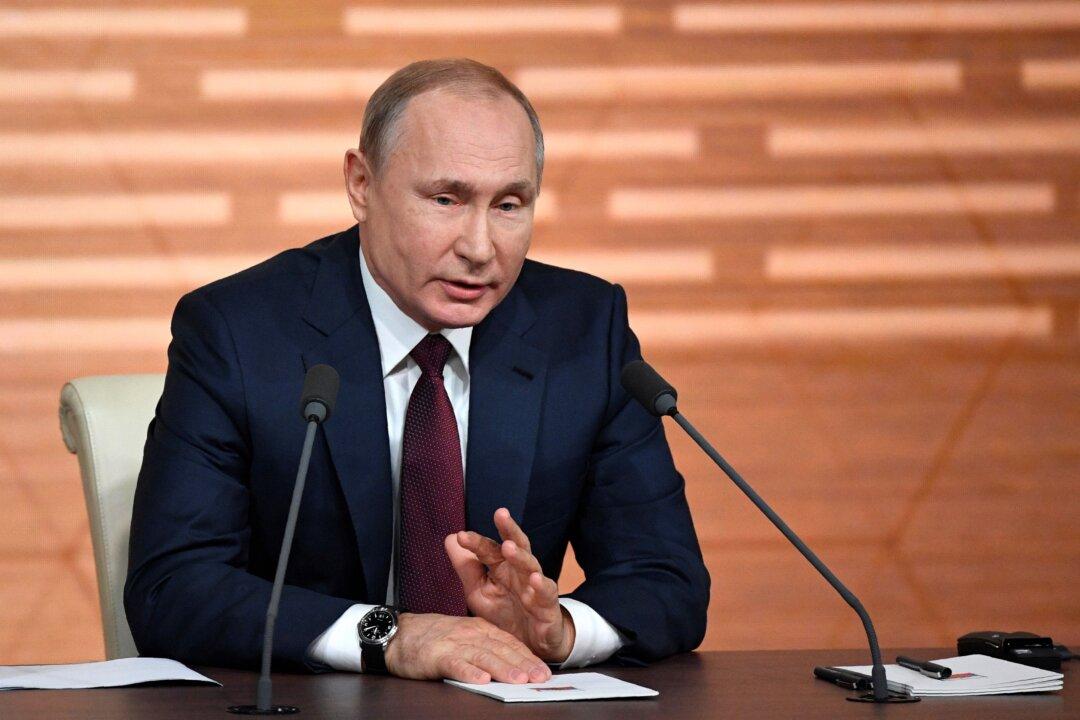MOSCOW—Russia has signaled it will file an appeal against its four-year Olympic ban because of World Anti-Doping Agency sanctions that President Vladimir Putin has branded “unfair.”
The Russian anti-doping agency’s supervisory board voted Dec. 19 to file an arbitration case with the Court of Arbitration for Sport (CAS) in Switzerland. WADA last week ruled Russia had manipulated doping laboratory data to cover up past offenses.





